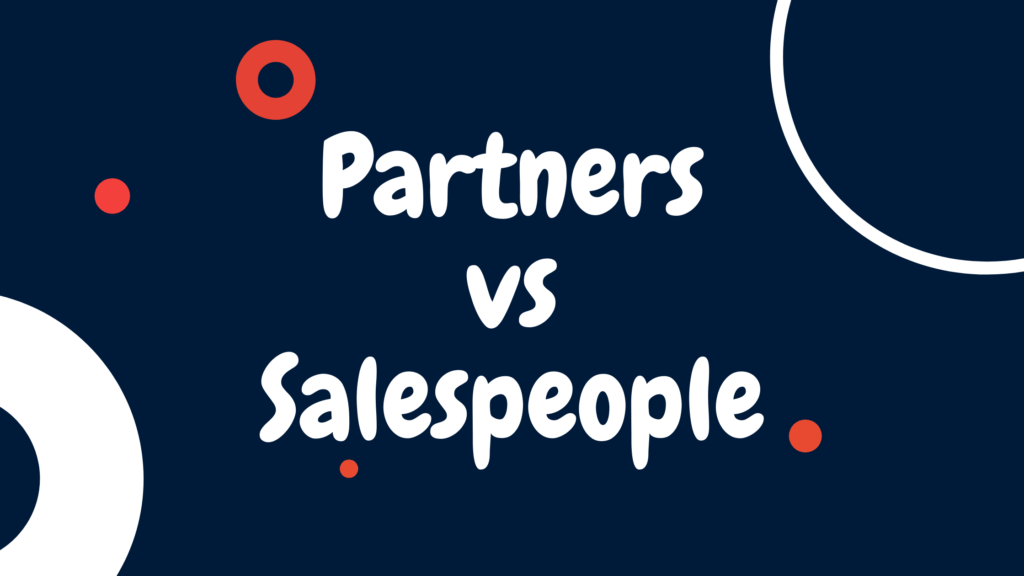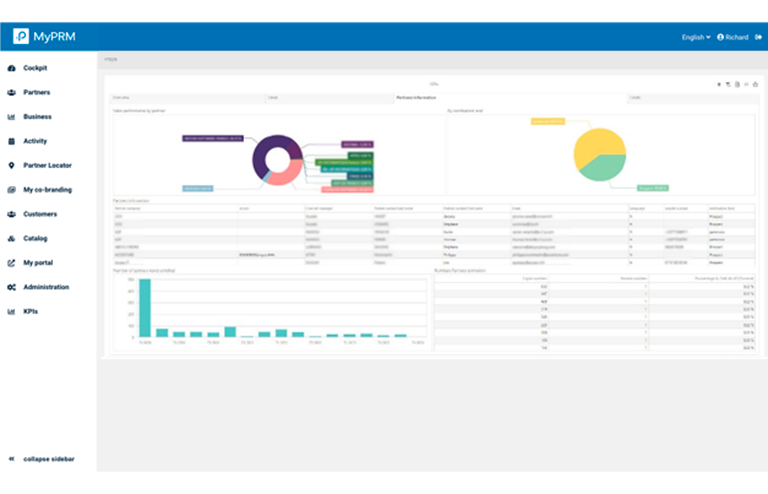
A salesperson is for direct sales what a partner is for indirect sales. If they have one thing in common: it is their goal to generate more sales for the company they work for or partner with. However, their roles are in reality very different.
What are the main differences during all phases of collaboration? This is the topic we are going to discuss in this article.
Attracting a salesperson vs a partner
Like anyone recruited by a company, salespeople are primarily interested in companies that share their values or that have a project that may appeal to them. Of course, the tasks required of them and the compensation they will receive are also essential in motivating potential employees. A salesperson will be forward-looking and therefore enticed by companies that can offer him or her real opportunity for development.
Conversely, a partner is primarily interested in the added value a company can offer for their prospects and/or customers. The partner will need to be ensured that your offer complements the knowledge of his/her team.
Recruiting a sales representative vs. recruiting a partner
When recruiting both a sales representative and a partner, interest must be present on both sides!
Take the case of a salesperson: the company is particularly interested in their background, their training, but also their skills and expertise. Nowadays, companies are also paying more and more attention to the “soft skills” of their recruits, the network of employees they recruit, as well as their personal qualities. They need to focus on the number of people they hire as well as the commitment of those that they do hire, keeping in mind that an overworked employee will be more inclined to make mistakes, or even leave.
In the case of a partner, the strength of the brand plays an important role: the quality of the offer, the innovation, all these criteria are taken into account.
Training a salesperson vs. training a partner
Once your salespeople or partners have been recruited, you will have to train them. We cannot repeat it enough: your partners deserve to be as well trained as your internal salespeople. They both need to get to know your brand and your market. However, the constraints are different.
While a salesperson can be put to work right away and will be available on a daily basis for training, a partner does not have as much availability and proximity.
He/she should be trained remotely, and if possible, using tools that allow him to be autonomous in the management of his training so that he chooses times when he is available.

Helping a salesperson vs a partner with further development
As soon as your salespeople or your partners start selling your products/services, your company will seek to help them develop their skills further.
In both cases, reports are essential to understand the performance of your salespeople or your partners.
When you have an internal sales team, you most likely have an internal marketing team. The advantage of the sales team is that they can capitalize on the activities that are delivered by the marketing department.
Conversely, partners will have to set up marketing actions by themselves to communicate with their prospects and/or customers. In the majority of cases, partners will benefit from the support of the company which can provide them with co-branded documents or even marketing tools to carry out email campaigns.
There are several advantages to having an external network of partners who you can rely on. In particular, you will be able to reach new targets and above all, you will be able to optimize your costs (salary, infrastructure, etc.). Accessing international markets using indirect sales will be also easier as your partner network will know the market better than you. For your business, it’s a foothold in a new country, with no premises or team on site!
If you are interested in how a partner management software can help you accelerate your sales internationally and improve your relationship with your partners, contact us.



